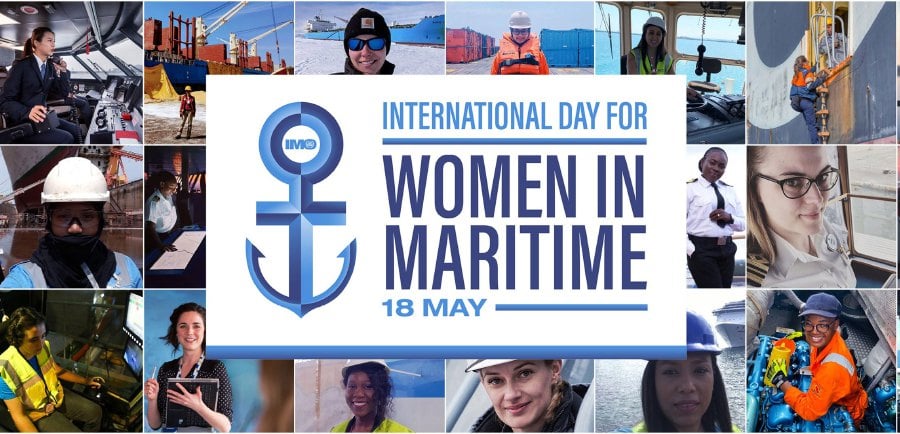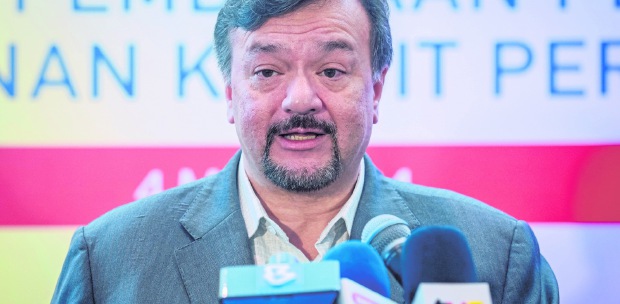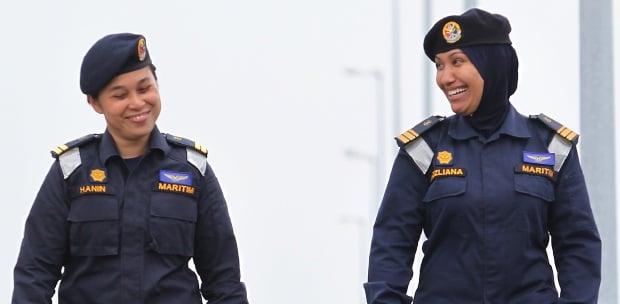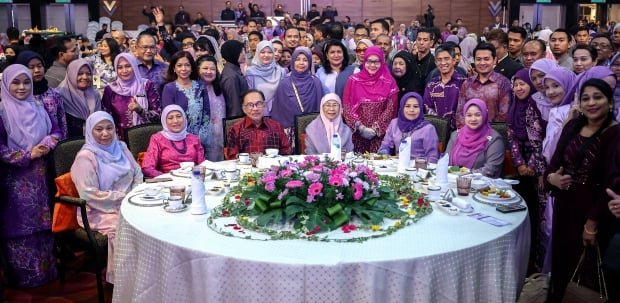THE International Day for Women in Maritime is celebrated worldwide on May 18th every year to honour women's accomplishments in the maritime sphere.
The theme for this year is "Safe Horizons: Women Shaping the Future of Maritime Safety". This theme acknowledges the vital contribution of women in improving safety measures, whether it be as seafarers, maritime professionals or in leadership roles.
Based on data collected by the International Transport Workers' Federation, women comprise a mere 29 per cent of the overall maritime workforce, while the worldwide population ratio of female seafarers is less than two per cent.
It has acquired symbolic significance within a community that perceives sailing and maritime-related professions as predominantly masculine. Women in the maritime industry should strive to overcome the barriers that prevent them from advancing in their careers and collaborate to challenge the prevailing societal and cultural prejudices they face.
To date, the maritime industry has numerous opportunities for women, ranging from careers in sailing and engineering to law and logistics, and beyond. In fact, women have played a significant role in advocating for improved safety standards in the workplace, tackling environmental concerns, and spearheading technical progress in the maritime industry.
Women hold positions as officers, investigators, intelligence analysts and administrators in agencies such as the Coast Guard, maritime police and Customs enforcement.
The Secretary-General of the International Maritime Organisation (IMO), Arsenio Dominguez, stated that the ultimate goal is not only to recognise the achievements of women but also to promote equal opportunities and harness the complete potential that a diverse workplace provides.
Another goal is to draw attention to and increase awareness about the obstacles they encounter, such as discrimination, disparities and limitations in terms of career prospects.
Malaysia, being a member state of the IMO, a specialised agency of the United Nations, is committed to fostering sustainable development in order to empower women and address the gender disparity in the industry.
Women leaders should set a precedent by being exemplary, acting as role models and working towards establishing work environments that are inclusive, empowering and safe for women. Their leadership contributes to a more inclusive and effective maritime sector.
Malaysia has the potential to enhance women's involvement by enacting regulations that encourage gender diversity in maritime safety positions.
Possible measures to promote gender diversity in maritime safety could involve establishing specific goals for female representation, providing rewards for organisations that successfully meet these goals, and implementing nationwide campaigns to increase knowledge of career prospects for women in this field, emphasising the significance and influence of their contributions.
In the realm of education and training, it is crucial to offer scholarships and financial assistance to women who are seeking education and training in maritime safety. Additionally, it is important to incorporate maritime safety programmes into the curriculum of educational institutions and ensure that they are easily accessible to female students.
Women should be provided with enhanced mentorship initiatives by connecting experienced female professionals with ambitious young women in the industry, offering them guidance, support and career development assistance.
There must also be efforts to facilitate networking opportunities for women in maritime safety through the establishment of settings where they may connect, exchange insights and engage in collaborative efforts. These platforms may include conferences, seminars and online forums.
There must also be strengthening of industry cooperation by forming alliances with maritime organisations, including shipping firms and port authorities, to foster gender diversity and adopt optimal strategies for incorporating women into safety positions.
Promoting gender diversity can be facilitated by urging industry stakeholders to make a commitment through signing pledges or engaging in programmes that specifically aim to enhance female participation.
This includes increasing the visibility of successful women leaders in maritime safety through the promotion of their achievements which can serve as role models and inspire the next generation. This can potentially encourage young girls to pursue careers in the marine safety area.
There must also be collaboration with international organisations, such as the IMO, to implement worldwide guidelines and standards for promoting gender equality in maritime safety.
Engaging in foreign exchange programmes could provide Malaysian women with the opportunity to acquire expertise and knowledge from other nations that have implemented effective gender diversity efforts.
An essential aspect is to provide a conducive work environment in the maritime sector by implementing laws that promote gender equality, including flexible working arrangements, maternity leave and anti-discrimination measures.
The objective is to tackle safety and wellbeing issues that are unique to women in maritime settings and guarantee a secure and nurturing work environment.
Next, the implementation of these efforts must be overseen by creating a specialised task force inside the Transport Ministry or other relevant organisations. There must also be established monitoring and evaluation systems to monitor progress, evaluate the efficacy of initiatives and make any necessary modifications.
Efforts should also be made to engage community organisations, maritime unions and educational institutions in the endeavour to enhance female involvement in maritime safety.
Through the implementation of these measures, Malaysia can achieve substantial advancements in augmenting the representation of women in maritime safety, hence fostering a more inclusive, fair and efficient maritime sector.
* Dr Izyan Munirah Mohd Zaideen is a senior lecturer at Universiti Malaysia Terengganu and Commander Maritime while Dr Suzanna Razali Chan is the Director of the Malaysian Maritime Enforcement Agency Lahad Datu Maritime Zone, Sabah





